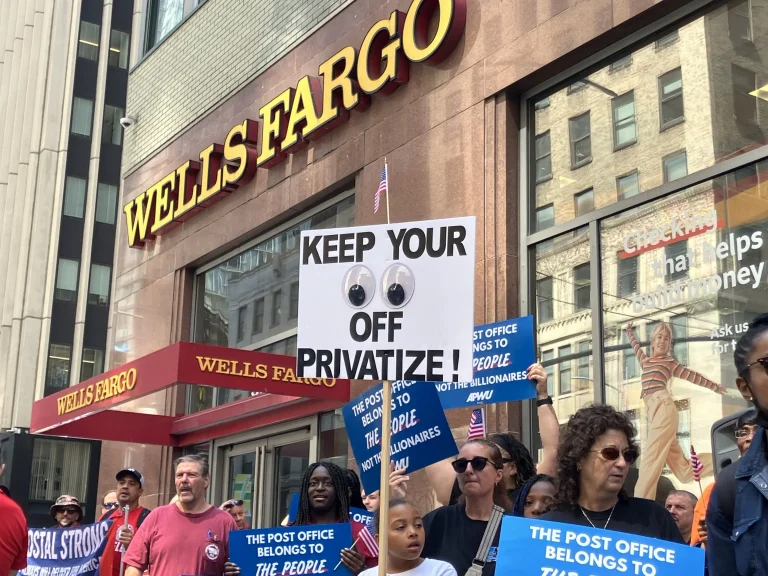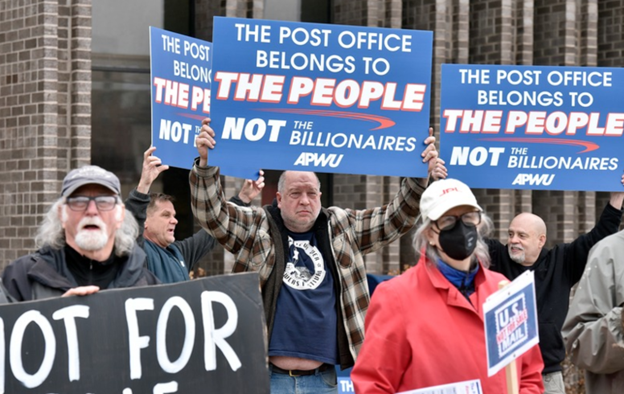‘The US Mail Is Not For Sale’: Threat To USPS Is Real Postal Workers Warn
Despite putting out an “Equity Research” paper earlier this year highlighting “The Required First Steps” to privatizing the U.S. Postal Service—Multinational financial services giant Wells Fargo told Work-Bites this week it isn’t actually advocating selling off the U.S. Mail.
Postal worker unions and their allies, however, dismiss that as nothing but corporate “double-speak” and insist the threat is very real and immediate.
Dimondstein told protesters, which also included members of the Communication Workers of America [CWA] embroiled in their own protracted contract fight with Wells Fargo, as well as customers and small business owners opposed to privatization from as far away as Iowa, that they were sending a message to the entire country—the “US Mail is not for sale.”















